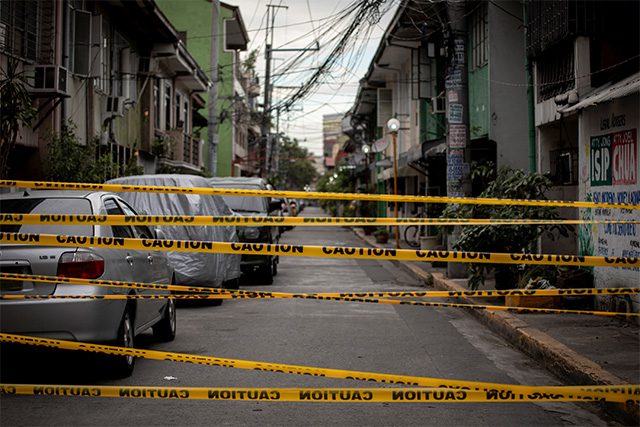
A government official’s remarks favoring the marking of houses of COVID-positive residents sparked worries about potential discrimination.
Undersecretary Martin Diño of the Department of Interior and Local Government said that local government units in the metro should consider placing markers.
It was also favored by some residents and the head of Barangay San Juan’s Barangay Health Emergency Response Team in Cainta, Rizal.
“Maganda ‘yan. Kasi dati, titirahin ka ng human rights… eh nung namamatay na mga kapitbahay… o edi ngayon, mabuti meron na tayong yellow tag,” Diño told ABS-CBN News on Sunday.
“Maganda ‘yong sa Pateros, sunod ako diyan. Dahil dito, at least, talagang mag-iingat ka. It’s high time for us to do that now,” he added.
In the municipality of Pateros, households with people infected by COVID-19 will be tagged with yellow ribbons outside their houses to ensure the monitoring of those with the virus and hasten the distribution of food packs.
Pateros Mayor Miguel Ponce III said that the initiative is voluntary and that there would be no penalties to those who will refuse the tagging.
Some Filipino online users then raised concerns over potential discrimination in the patient’s neighborhood due to the tagging.
“And for what? para maging source of discrimination sila if ever?” a Twitter user asked in response to the report.
“Ilagay na lang ninyo sa iwahig, anong klaseng patakaran na naman ito? Imbes na tulungan at pagbutihin ang sistemang pangkalusugan ay ipapahiya at idi-discriminate pa ninyo? May krimen ba at lalagyan ninyo ng markings?” another online user said.
“They’re already facing enough discrimination, dagdagan niyo pa?These are patients, not prisoners,” wrote a different Filipino.
Others claim that the practice could further discourage Filipinos from undergoing COVID-19 tests.
“Kaya ang daming ayaw magpatest. You truly aren’t helping,” a Twitter user commented.
There were others who said that this practice could become a ground for violation of the privacy of the COVID-19 patients.
https://t.co/qXSIMDZIbO pic.twitter.com/b7F3e5XhDP
— Mesperyian (@Queen_Eirlys) September 19, 2021
“Patient information is confidential and marking houses of COVID- positive patients is a breach in data privacy. You cannot mark their houses nor disclose their information without their consent,” another Twitter user claimed.
The revised implementing rules and regulations of Republic Act 11332 notes that there should be “respect for human rights” when it comes to enacting the law.
This law is also known as the Mandatory Reporting of Notifiable Diseases and Health Events of Public Health Concern Act.
Section 4 of Rule V of the law states that “all personnel of the DOH and its local counterparts, and all other individuals or entities involved in conducting disease surveillance and response activities shall respect, to the fullest extent possible, the rights of people to liberty, bodily integrity, and privacy while maintaining and preserving public health and security.”
The law also states that “unauthorized disclosure of private and confidential information pertaining to a patient’s medical condition” is prohibited.









